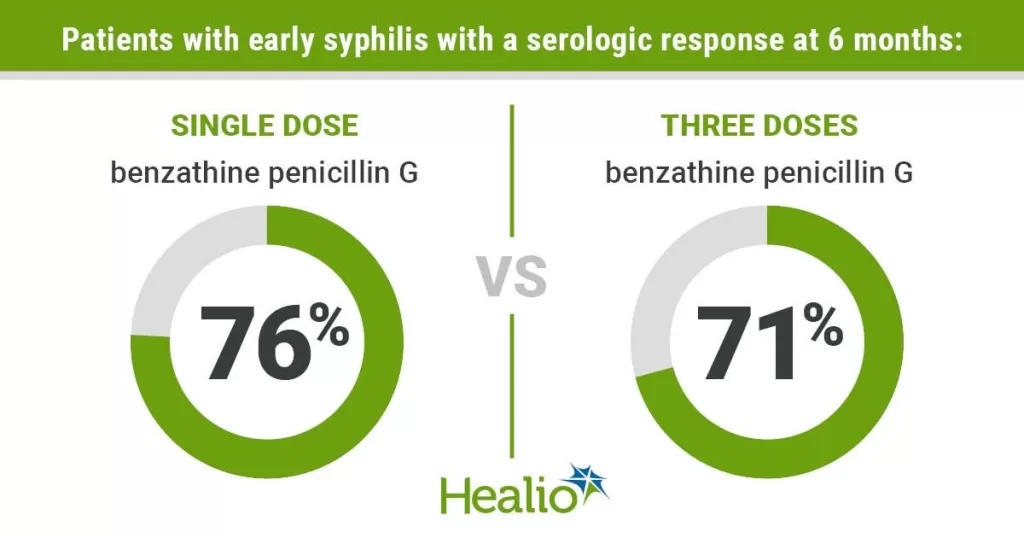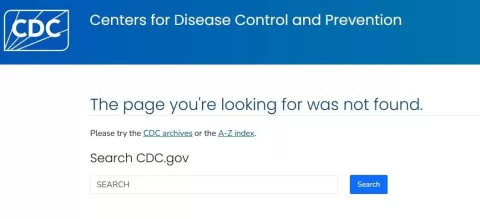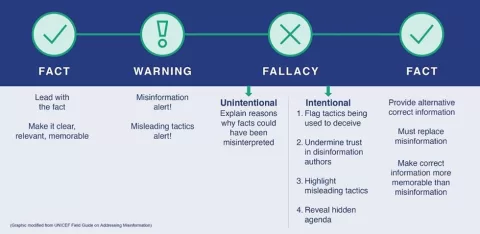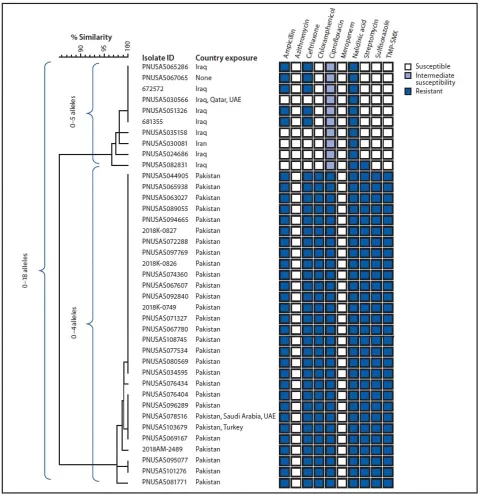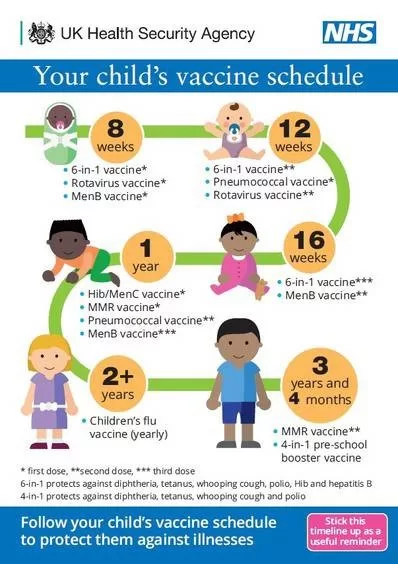Single-dose syphilis treatment has emerged as a significant advancement in the management of early syphilis, addressing the need for effective solutions, especially amid benzathine penicillin G (BPG) shortages. Recent clinical trials have demonstrated that a single injection of BPG provides comparable efficacy to the traditional three-dose regimen, simplifying the treatment process for patients. The findings align with syphilis treatment guidelines that aim to streamline care while fostering antibiotic stewardship in an era marked by rising syphilis incidence. With an estimated 209,000 infections in the U.S. alone, it is crucial to adopt effective interventions, particularly for individuals with concurrent HIV infections. This simplified approach not only alleviates patient burden but also encourages adherence to treatment, ultimately contributing to improved health outcomes in the fight against syphilis.
The concept of a one-time treatment for syphilis offers a fresh perspective in infectious disease management, particularly for early-stage syphilis cases. This innovative approach, which utilizes an effective antibiotic therapy in a single administration, challenges the traditional three-dose strategy previously favored by many healthcare professionals. By focusing on alternatives to lengthy treatment regimens, the medical community hopes to enhance patient compliance and outcomes. Taking into account the growing problem of antibiotic stewardship, such advancements are essential in optimizing treatment strategies for those diagnosed with sexually transmitted infections like syphilis. As researchers continue to explore optimal therapies for co-infected individuals, such as those living with HIV, the evolution of syphilis management paves the way for more adaptive healthcare solutions.
Understanding Single-Dose Syphilis Treatment
The recent shift towards single-dose syphilis treatment represents a significant advancement in managing early syphilis. Traditionally, the standard regimen consisted of multiple doses of benzathine penicillin G (BPG), which has been the cornerstone of syphilis treatment for decades. Recent trials have demonstrated that a single injection of 2.4 million units of BPG offers comparable efficacy to the multi-dose regimen. This is particularly crucial in today’s context where shortages of BPG have made it challenging for healthcare providers to adhere to the conventional treatment guidelines.
Clinical trials indicate that patients treated with a single dose show a 76% success rate in achieving serologic response six months post-treatment, nearly aligning with the 70% response rate of those receiving the three-dose regimen. This means that for early-stage syphilis, a simplified treatment approach with a single injection is both effective and more accessible, thereby reducing barriers to care for patients, particularly as syphilis rates surge.
The Role of Benzathine Penicillin G in Syphilis Treatment
Benzathine penicillin G (BPG) plays a vital role in the treatment of syphilis, particularly in early syphilis cases where prompt intervention can prevent complications. The antibiotic has been proven effective against the syphilis-causing bacterium Treponema pallidum, and its use as a single-dose administration simplifies the treatment regimen significantly. This is especially notable in the face of rising syphilis incidence, with reports suggesting a 61% increase in cases since 2019.
Moreover, the implications of utilizing BPG extend beyond mere treatment; they touch on antibiotic stewardship principles. By promoting single-dose treatment options, healthcare providers can enhance care quality while preserving antibiotic efficacy. This approach minimizes unnecessary prescriptions of multiple doses, thereby aligning with recommendations from the CDC and contributing to global efforts against antibiotic resistance.
Implications for HIV Syphilis Treatment
The intersection of syphilis and HIV presents unique challenges in treatment protocols. Historically, there has been concern about the adequacy of a single dose of benzathine penicillin G (BPG) in HIV-positive individuals with early syphilis. However, recent studies provide convincing evidence that the single-dose regimen can be effectively deployed even among patients with HIV, offering a breakthrough in treatment consistency and access.
These findings encourage clinicians to adopt single-dose treatment for patients with both syphilis and HIV, reducing the burden and complexity of ongoing treatment. By satisfying the effectiveness criteria highlighted in clinical studies, healthcare providers can potentially improve patient adherence, decrease the stigma associated with multiple treatments, and ultimately contribute to more favorable health outcomes.
Efficiency in Treating Early Syphilis Cases
Efficient treatment for early syphilis is paramount in curtailing the rising trends of new infections. The traditional three-injection course poses numerous barriers, including accessibility issues and patient compliance. The single-dose regimen of benzathine penicillin G not only streamlines the treatment process but also minimizes the likelihood of treatment interruptions, which are often seen in multi-dose setups.
Moreover, the clinical community advocates for this streamlined approach as it aligns with current syphilis treatment guidelines. By confirming that a single-dose therapy is non-inferior to its multi-dose counterpart, healthcare providers can ensure their patients receive effective care while fostering a more manageable framework for monitoring and follow-up.
Addressing Drug Supply Shortages
The persistent shortages of benzathine penicillin G (BPG) intensify the need for innovative treatment strategies for syphilis. Traditional multi-dose regimens depended heavily on the availability of this essential antibiotic. The recent study advocating for a single-dose treatment emerges as a timely solution, potentially alleviating some pressure on BPG supply chains. This method could ease the burden on healthcare providers who have struggled with meeting treatment guidelines amidst availability challenges.
Furthermore, adopting a single-dose regimen may help in resource allocation, ensuring that existing supplies are used more effectively at a time when the demand for syphilis treatment continues to rise. By reducing reliance on multiple doses, healthcare systems can better manage their antibiotic use and optimize treatment outcomes in the given context of drug shortages.
Benefits of Simplified Treatment Protocols
Simplifying treatment protocols for early syphilis not only aids in increasing patient compliance but also enhances overall public health outcomes. The evidence from recent trials supports the shift toward a single-dose regimen of benzathine penicillin G, which eliminates the complications associated with multi-dose schedules. This is particularly beneficial for populations facing access challenges, allowing them to receive timely and effective care without the worry of repeated visits.
In addition to improving patient experience, streamlined treatment options support broader public health initiatives aimed at controlling sexually transmitted infections (STIs). By enhancing patient adherence through simplified protocols, public health officials can more effectively combat rising syphilis rates and mitigate the potential long-term impacts of the infection on both individuals and communities.
Impact on Antibiotic Stewardship Efforts
The push for single-dose treatments for early syphilis through benzathine penicillin G integrates well with existing antibiotic stewardship initiatives. The focus on reducing unnecessary drug use directly contributes to the preservation of antibiotic effectiveness, ensuring that treatments remain viable options for severe infections. By endorsing a regimen that requires fewer doses, healthcare providers can minimize the risk of adverse events and associated complications while enhancing treatment adherence.
Furthermore, the findings from recent studies present an opportunity for healthcare systems to reevaluate their antibiotic prescribing practices within the scope of syphilis management. A single-dose administration can align treatment outcomes with stewardship goals, leading to a decrease in the overall antibiotic burden in the population, which is essential for maintaining public health integrity.
Navigating Treatment Recommendations and Guidelines
Navigating treatment recommendations for early syphilis can be complex, particularly with the differing protocols that exist for varied patient populations. Recent findings suggest a shift in recommendations towards advocating single-dose benzathine penicillin G, a change that aligns with updated syphilis treatment guidelines by health authorities such as the CDC. This transition not only consolidates the treatment framework but also promotes consistency across healthcare settings.
Healthcare providers must stay informed of these evolving guidelines to ensure they deliver the most effective and evidence-based treatment to patients. In particular, the influence of resulting clinical trial data should lead to thorough discussions during patient consultations, empowering them with knowledge about their treatment options and fostering confident healthcare decisions.
Future Perspectives on Syphilis Treatment
The findings surrounding single-dose treatment for early syphilis herald a promising shift in the management of this ancient infection. The success of benzathine penicillin G as a stand-alone option opens doors to more efficient treatment pathways, enabling healthcare professionals to address syphilis outbreaks more effectively. As public health initiatives continue to grapple with the complications of rising syphilis rates, innovative treatment strategies become essential.
Future research should focus on enhanced prevention and diagnostic tools, alongside treatment innovations, to fully optimize syphilis management. By continuing to explore simplified treatment protocols, healthcare providers can better combat the epidemiology of syphilis while ensuring patient-centered care remains at the forefront.
Frequently Asked Questions
What is single-dose syphilis treatment with benzathine penicillin G?
Single-dose syphilis treatment refers to administering a one-time injection of benzathine penicillin G (BPG) to effectively treat early stages of syphilis. Research indicates that this regimen is as effective as the traditional three-dose regimen, simplifying treatment for patients and enhancing adherence.
How effective is single-dose benzathine penicillin G for early syphilis treatment?
Clinical trials have shown that a single dose of benzathine penicillin G achieves similar serologic response rates for early syphilis as a three-dose regimen. In recent studies, 76% of participants receiving the single dose responded positively, indicating its effectiveness.
Are there any advantages to using single-dose syphilis treatment over multiple doses?
Yes, single-dose syphilis treatment is less burdensome for patients compared to multiple doses. The convenience of a one-time injection can lead to better adherence, especially important in populations such as individuals with HIV, where treatment adherence is critical.
What do the syphilis treatment guidelines say about using single-dose benzathine penicillin G?
Current syphilis treatment guidelines by the CDC recommend single-dose benzathine penicillin G for early syphilis. The guidelines indicate that this treatment provides effective results and should be considered particularly for patients to avoid the complications of multi-dose regimens.
How does single-dose treatment impact antibiotic stewardship in syphilis management?
Single-dose treatment with benzathine penicillin G supports antibiotic stewardship by reducing the overall use of antibiotics without compromising treatment effectiveness. This approach minimizes the risk of antibiotic resistance and promotes more efficient resource use in healthcare.
What considerations should be taken for HIV patients undergoing single-dose syphilis treatment?
While single-dose benzathine penicillin G has proven effective for treating early syphilis in individuals with HIV, clinicians should continue to monitor these patients closely. Although studies affirm its efficacy, individual treatment plans may vary based on the patient’s health and specific circumstances.
What are the most common side effects of single-dose syphilis treatment?
The most frequently reported side effects of single-dose benzathine penicillin G include local pain and tenderness at the injection site. In studies, 76% of participants experienced these mild reactions, which are generally temporary.
Can single-dose treatment be used for all stages of syphilis?
Single-dose benzathine penicillin G is primarily recommended for early stages of syphilis, including primary and secondary syphilis. For late latent syphilis or unknown duration cases, the standard CDC recommendation remains three doses.
What research supports the use of single-dose benzathine penicillin G for syphilis treatment?
Recent randomized clinical trials, including those published in the *New England Journal of Medicine*, provide robust evidence that single-dose treatment is non-inferior to three doses. These findings are crucial for establishing effective treatment protocols.
How are treatment outcomes measured for single-dose syphilis treatment?
Treatment outcomes for single-dose syphilis treatment are typically measured by serologic response at six months post-treatment, where a significant percentage of patients show improvement in their syphilis infection status.
| Key Point | Details |
|---|---|
| Trial Background | A randomized clinical trial demonstrated that a single dose of benzathine penicillin G (BPG) is as effective as a three-dose regimen for treating early syphilis. |
| Study Details | The study included 249 participants with early syphilis, comparing a one-time injection of 2.4 million units of BPG to three doses given weekly. |
| Serologic Response | At 6 months, the serologic response was 76% for the single-dose group compared to 70% for the three-dose group. |
| Adverse Events | Local injection site pain and tenderness were reported in 76% of the single-dose group and 85% of the three-dose group. |
| Clinical Implications | The single-dose regimen simplifies treatment and may improve adherence, particularly in patients with HIV. |
Summary
Single-dose syphilis treatment is gaining traction as research shows that a one-time injection of benzathine penicillin G (BPG) effectively treats early syphilis, providing a simpler alternative to traditional three-dose regimens. This development is particularly significant amid current BPG shortages in the U.S. The study’s findings indicate that a single dose can achieve comparable efficacy while reducing treatment burden, which is vital in addressing the alarming rise of syphilis infections.
The content provided on this blog (e.g., symptom descriptions, health tips, or general advice) is for informational purposes only and is not a substitute for professional medical advice, diagnosis, or treatment. Always seek the guidance of your physician or other qualified healthcare provider with any questions you may have regarding a medical condition. Never disregard professional medical advice or delay seeking it because of something you have read on this website. If you believe you may have a medical emergency, call your doctor or emergency services immediately. Reliance on any information provided by this blog is solely at your own risk.



